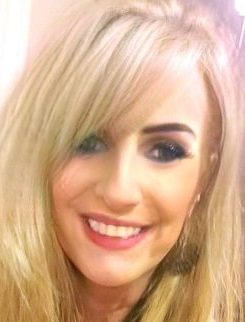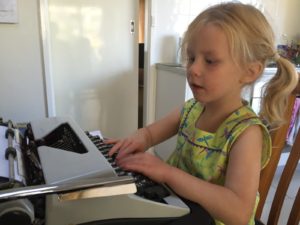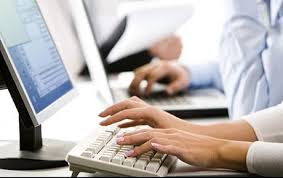Meet Monique: Deposition Transcriptionist

From California to Minnesota to Texas, Monique’s transcription career has morphed over the years from clerk typist to transcriptionist of depositions. She began transcribing during her senior year in high school and hasn’t stopped since!
Monique is a little bit Unique!
Monique Swanson, an excellent transcriptionist of depositions, has a bit of a unique background. She’s witnessed the changes in technology and has actually been a part of the evolution of the transcription industry.
Let’s find out a little more about Monique!
How did you first become aware that you would like to have a transcription career?
In 1973, when I was 7 years old, my mom came into my room and placed a small, square suitcase on my desk. Inside was a Sears electric typewriter, a stack of paper, and a book with typing exercises.
“Learn this. You’ll need it some day,” was all she said before heading downstairs to make dinner.

From that day on, while other kids were outside playing or engaging in more traditional age-appropriate activities, I spent hours on end in my room, consumed with the goal of becoming the most accurate, fastest typist possible.
Tell us about your work before you even knew what depositions were.
Sure. I began as a clerk typist for an insurance company in California. From there, even though I had no experience, my exceptionally fast typing skills landed me a job as a medical transcriptionist at a local hospital. However, I was drawn to the insurance defense field, so I secured a job as a legal secretary for two years before moving from California to Minnesota. Hard for me to believe, but that was 30 years ago!
In addition, I attended court reporting school in California up to my 180s. My legal secretarial experience and the knowledge gained from court reporting classes allowed me to transition into transcribing depositions, which I do currently from my home in Texas. I take an extreme amount of pride in my work and absolutely LOVE transcribing depositions, not to mention how much I enjoy the freedom that working from home affords me.
Can you describe the changes you’ve seen in the transcription field over your career?
Yes. From typing with carbon paper to utilizing data processors to laptops. And from transcribing micro and mini cassettes to using various types of software.

Technology changes over time, and we have to adapt and not be afraid to educate ourselves on how to use it.
Have you been the recipient of any honors you’d like to tell us about?
Well, after working for a Minnesota law firm for one year, a managing partner asked me to be the sole typist/proofreader/editor of the original Minnesota Workers’ Compensation
Deskbook. I remember being SO excited for that incredible opportunity!
If you made a list of items you believe are necessary for transcription work, what would your list look like?
- Excellent typing speed and accuracy
- Keen ear for dialects and understanding accents
- Highly focused and disciplined
- Above-average vocabulary and a really good knowledge of English punctuation and grammar
- Experienced in the use of various types of software and hardware
- Exceptional proofreading skills
- Great interpersonal and communication abilities
- Trained in medical and/or legal terminology
- Well trained in transcribing many different types of proceedings
RELATED: Transcription Training.
What do you see for the future of transcription, including depositions?
Sadly, medical is pretty much a no-go now because the days of in-house transcription are virtually gone. The combination of voice recognition software and lower prices from overseas transcribers has basically killed the industry in the United States. Since legal secretarial transcription is mostly one-voice dictation, I envision that voice recognition software or artificial intelligence will eventually take over that profession.
However, I do believe that depositions and other multi-voice legal transcription will be unaffected by new technology for the next few decades. You need a human being to create a TRUE account of the spoken word when it comes to legal proceedings. There is no real room for error.
Conclusion…
We sincerely thank Monique for her time and sharing her transcription adventures with us. And to think: She owes it all to that little Sears typewriter (and her own fierce determination). Way to go! Monique can be reached at MoQSwan@gmail.com if you’d like to hire her for transcription of your next deposition.
Disclaimer: With consent, we publish answers given but do not vet each person interviewed.
